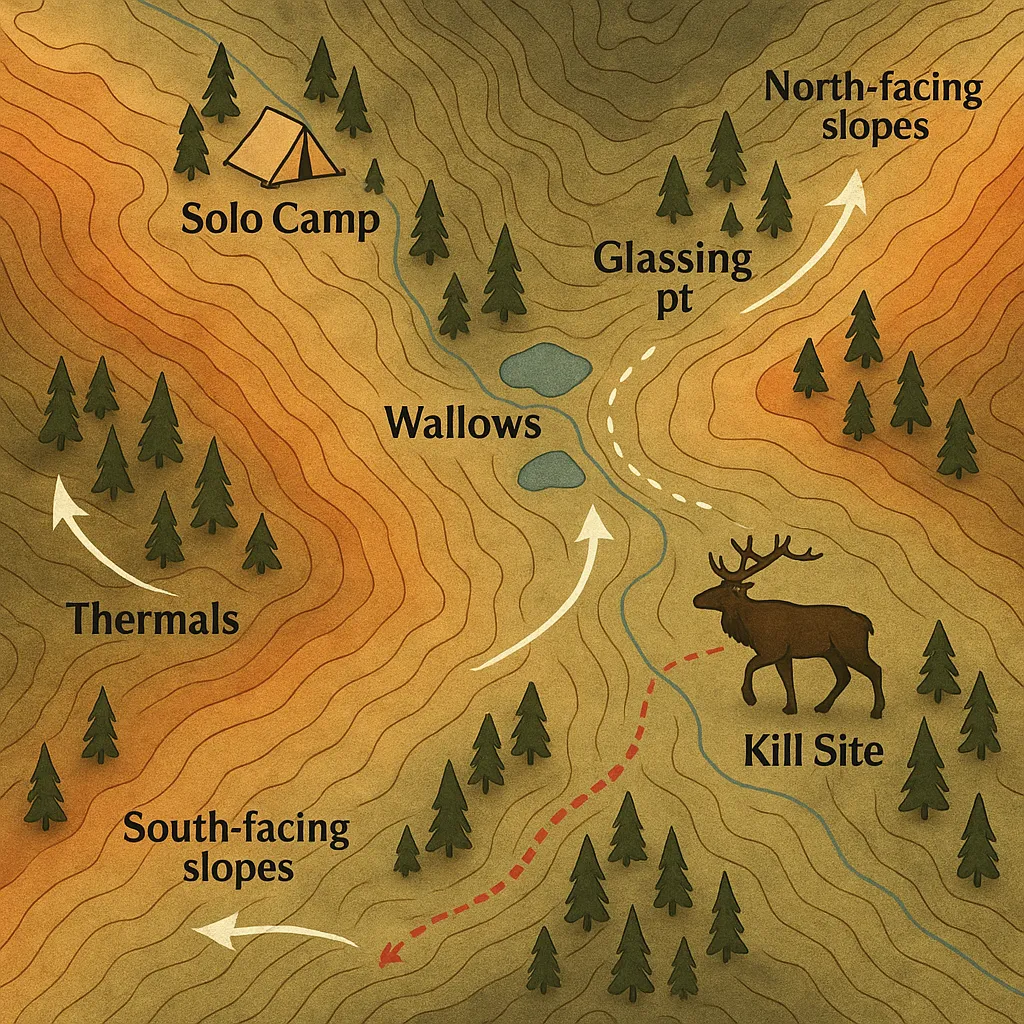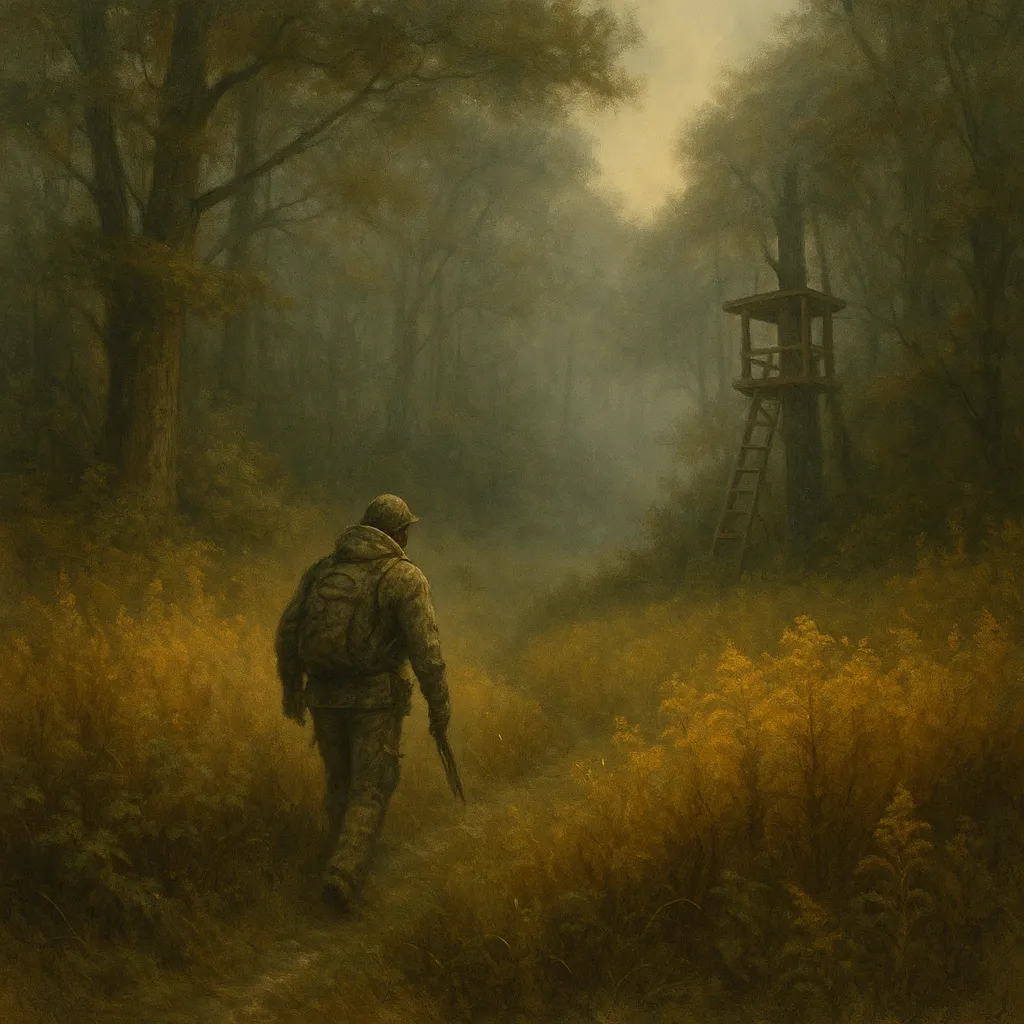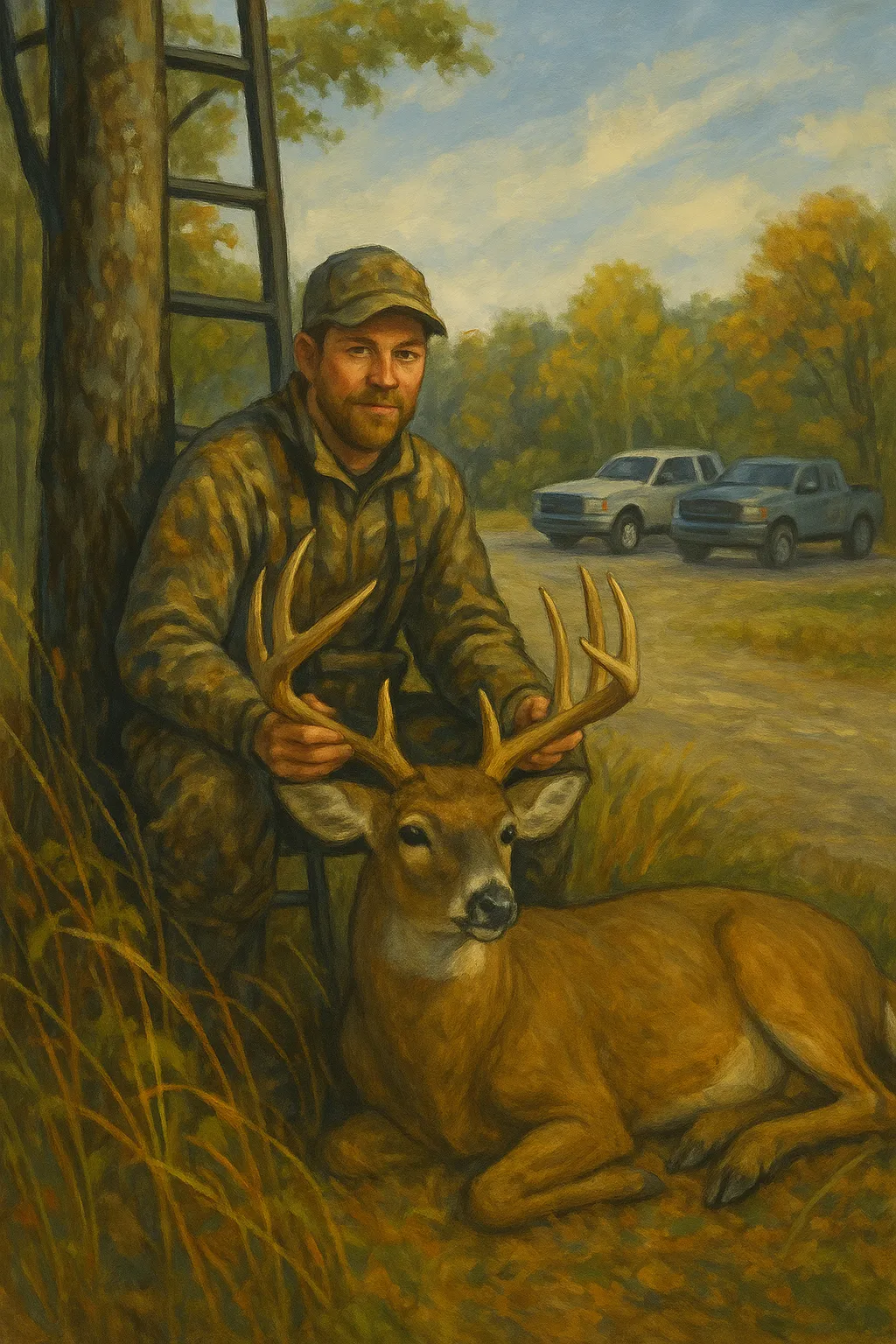Tracking Elk in the Snow: A 3-Day Silent Standoff in Idaho’s Backcountry
In November, the snow came hard and early to the Bitterroots. I had a general tag, a full pack, and 40 square miles of National Forest under a blanket of silence. What I didn’t know was that I’d soon be locked in a slow-motion pursuit of a bull elk who moved like a shadow and never gave me more than a whisper of a chance.
This is the story of a 3-day silent standoff that tested every ounce of woodsmanship I thought I had.
❄️ Day 1: The First Track
I glassed the south-facing ridge at dawn. Nothing. No movement. But as I dropped into a timbered bench around 9:00AM, I found it—a fresh, single set of bull tracks winding through 6 inches of soft snow. No other prints. No human boot sign. Just wide, deliberate steps and the occasional brush swipe from low-hanging fir.
🎙️ “This wasn’t a herd bull. This was a loner. A survivor.”
I tracked him slowly through the finger ridges, noting rubs, droppings, and the way he avoided exposed meadows. He was using contour lines like a sniper—feeding, then side-hilling, bedding in wind-safe cuts. I followed until dusk but never caught up.
I set up camp 200 yards off his last trail, cold-soaking freeze-dried pasta and laying out my gear in silence.
🌲 Day 2: The Standoff Begins
By first light, the tracks were iced over—he’d moved sometime in the night.
He’d fed down into a basin filled with blowdown and wallows. I picked up his new trail around 10:30AM. It was tighter, more direct. His stride had shortened. He was slowing down. Bedding again.
At 2:12PM, I saw a flicker of tan—just an ear twitch behind a fir at 75 yards. I froze.
I waited.
The wind shifted. He stood, quartered away, then vanished. I never raised my rifle.
🎙️ “It wasn’t a shot I could make clean. So I didn’t take it.”
I slept in a bivy sack that night, 300 feet below the bed, hoping he’d circle back into the basin with the rising moon.
🥾 Day 3: The Last Window
It snowed lightly overnight. His new tracks led up the spine of a ridgeline burned 6 years ago. Open shooting lanes. Good visibility. I moved faster now—calculating wind, thermals, and sun angles.
At 10:46AM, I spotted him crossing a patch of snow-dusted deadfall—85 yards, quartering broadside. This time, I was in place. Kneeling. Braced.
The .308 barked once.
He dropped in the tracks. A clean double-lung.
🎙️ “I sat there for a full minute before moving. Not out of shock. Out of respect.”
🏕️ The Pack Out: Heavy and Worth It
Quartering took two hours. I packed the first load—hind quarter, tenderloins, and antlers—3 miles downhill to a staging point. Then the second load the next morning.
40 miles. 3 days. One chance. And a bull that never made a sound.
🎙️ “He never bugled. Never raked. Never ran. He just led—and I followed.”
🧠 Backcountry Lessons from a Silent Bull
✔️ Fresh Snow Is a Teacher – Every step told a story: feeding, bedding, circling
✔️ Go Slow or Go Home – Elk aren’t fast if you’re quieter than they are
✔️ Thermals Matter Most – I adjusted every 100 yards based on wind columns
✔️ No Sound Doesn’t Mean No Elk – Late-season bulls speak with tracks, not bugles
✔️ You Don’t Need to Call – You need to listen, and read the land
🧰 Gear That Made the Difference
| Gear | Why It Mattered |
|---|---|
| Kifaru 44 Mag Pack | Carried two loads without fail |
| Vortex Viper HD 10×42 | Spotted the flicker of an ear behind fir |
| Stone Glacier gaiters | Kept snow out during long tracking sessions |
| First Lite Furnace base | Stayed warm even in bivy-mode |
| Garmin inReach Mini | Emergency updates + tracking backcamp zones |
📣 Final Shot: Why I’ll Do It Again
This wasn’t a bugle-fest. There were no screaming bulls or run-ins with rival hunters. It was quiet. Patient. Earned.
“Some elk are killed in chaos. Others are taken in silence. The ones in silence feel more like a conversation than a conquest.”
This hunt taught me to trust the terrain, read the sign, and follow—not chase.
Leave A Comment
Related Posts
Camping Solo and Hunting Smarter: A Week on Colorado’s DIY […]
The Forgotten WMA: How I Tagged Out Where Nobody Goes […]
Ladder Stands and Pressure: Killing a Buck 100 Yards from […]





